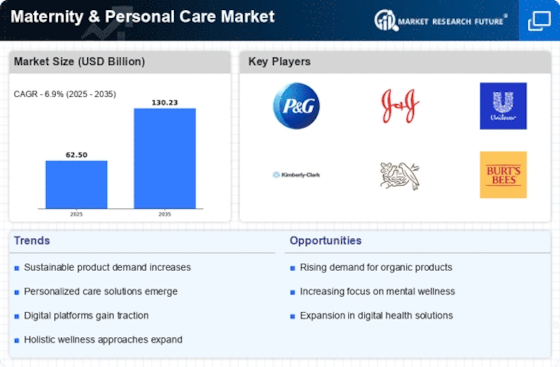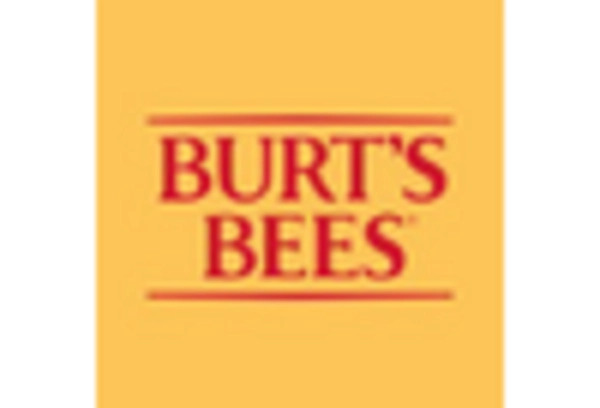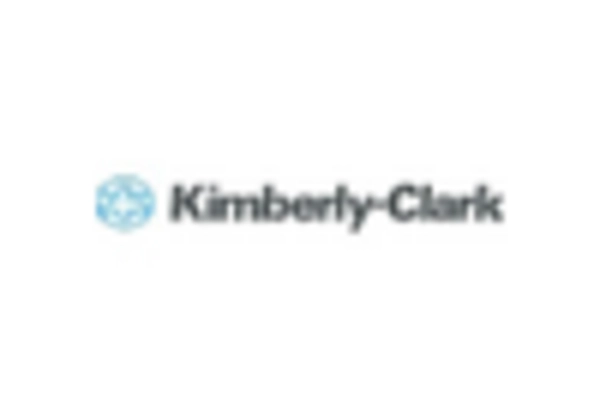Market Analysis
In-depth Analysis of Maternity & Personal Care Market Industry Landscape
The maternity personal care market is influenced by several key market factors that shape its dynamics and growth trajectory. Understanding these factors is essential for businesses operating in this sector to identify opportunities, mitigate risks, and formulate effective strategies to meet the needs of expecting and new mothers.
Firstly, demographic trends play a significant role in shaping the maternity personal care market. Population growth, urbanization, and changing family structures impact the size and composition of the target market. As birth rates fluctuate and more women delay childbirth to pursue careers or education, the demographic profile of expectant mothers evolves, creating new segments with distinct preferences and needs for maternity personal care products.
Moreover, societal shifts and cultural attitudes toward pregnancy and motherhood influence consumer behavior in the maternity personal care market. Changing perceptions of beauty, wellness, and self-care drive demand for products that cater to the unique skincare, hygiene, and comfort needs of pregnant and postpartum women. Additionally, increasing awareness of environmental sustainability and health-consciousness among consumers prompts a growing demand for natural, organic, and eco-friendly maternity personal care products.
Furthermore, economic factors such as disposable income, purchasing power, and consumer spending patterns impact the maternity personal care market. Economic fluctuations, inflation, and income inequality can influence consumer confidence and willingness to spend on non-essential items, including maternity personal care products. Moreover, the affordability and accessibility of healthcare services, including prenatal and postnatal care, can indirectly influence demand for maternity personal care products by shaping consumer priorities and spending behavior.
In addition to demographic, societal, and economic factors, technological advancements and innovation drive market trends and product development in the maternity personal care sector. Advances in skincare technology, ingredient formulations, and product delivery systems enable manufacturers to create safer, more effective, and user-friendly maternity personal care products that address specific concerns and preferences of expectant and new mothers. Moreover, digitalization and e-commerce platforms provide opportunities for brands to reach and engage with consumers directly, offering personalized shopping experiences and convenient access to a wide range of maternity personal care products.
Regulatory and policy factors also impact the maternity personal care market, as government regulations and industry standards govern product safety, labeling, and marketing practices. Compliance with regulatory requirements and certification standards is essential for ensuring the safety, efficacy, and quality of maternity personal care products and maintaining consumer trust and confidence in the brand. Additionally, evolving regulatory frameworks, such as restrictions on certain ingredients or packaging materials, may necessitate reformulation or product redesign to meet compliance requirements and market demands.
Moreover, competitive dynamics and market structure influence the strategies and behavior of players in the maternity personal care market. The presence of established multinational corporations, emerging startups, and niche brands creates a competitive landscape characterized by innovation, differentiation, and brand positioning. Strategic alliances, mergers, and acquisitions are common in the industry as companies seek to expand their product portfolios, market reach, and competitive advantage in the maternity personal care market.
Finally, consumer trends and preferences shape the demand for maternity personal care products, driving innovation and market segmentation. Increasing consumer demand for transparency, authenticity, and ethical sourcing drives brands to prioritize sustainability, social responsibility, and ethical practices in their product development and marketing strategies. Moreover, evolving lifestyle trends, such as active and wellness-oriented lifestyles, influence the demand for maternity personal care products that support holistic health and well-being during pregnancy and postpartum.



















Leave a Comment